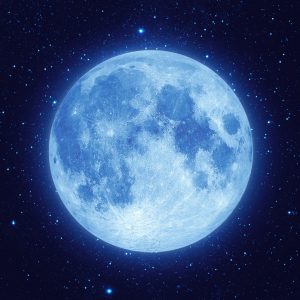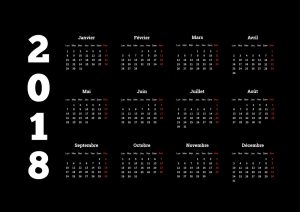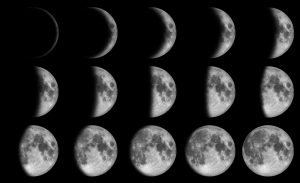Not all cannabis growers have in mind the moon when they start to grow, but it is much more important than they can imagine. It’s known to all that the crop’s success depends on many factors. However, following a particular lunar calendar will help you obtain marvelous results.

A short introduction to the lunar calendar
The lunar calendar determines the best time to grow, germinate, harvest… based on the different stages of the moon. A moon's cycle is 29-30 days long on average (synodic month). The lunar calendar is divided into different stages that provide a better basis for planning the growing schedule. It is a scientifically proven fact that the moon affects life on Earth and all the living creatures on it. The tide phenomenon is a clear example of how the moon's gravitational pull causes tides to rise. What does this have to do with the cultivation of cannabis? Plants are 80 % water, which leads us to believe that there must be a connection between both elements.

Since the early days of agriculture, growers have claimed the moon's phases to affect their farming and gardening practices. However, this ancestral practice was gradually abandoned in favor of the intensive growing methods that appeared in the 20th century. While it's true that modern people are increasingly out of touch with nature and its biological rhythms, growing by the moon is something all growers should bear in mind because it's the perfect symbiosis between the Earth's natural environment and the astronomical movements of the universe. Lunar gardening is a growing practice particularly suited to organic growers looking to respect the plants' natural growth cycle.
Understanding the lunar calendar
A lunar month is divided into two moon periods: waxing and waning, each of them formed, in turn, by two stages: crescent and gibbous. Waxing and waning: waxing is when the Moon passes from new moon (dark) to full moon (lit). Waning is when the process is reversed, that is to say, when the Moon shrinks.

- The waxing moon phase is a good time to work the land, germinate and sow.
- The waning phase is perfect for harvesting and pruning.
Crescent and gibbous: subject to the Moon's position with respect to the horizon.
- Crescent: it's when the leaves and buds grow more vigorously, but it's also a useful time to carry out transplants.
- Gibbous: during this phase, plants put more energy into developing their root system.
The important dates:
Leaf days: these are the days in which the moon is positioned in a water sign (Cancer, Scorpio, and Pisces). According to the moon calendar, leaf days are not so good for cannabis plants because they have flowers, but hedge-type bushes or leafy vegetables (lettuce, spinach, cabbage, aromatic plants…) usually thrive during these days. Flower days: it is when the Moon goes through Gemini, Libra, and Aquarius constellations (air signs). These days are particularly favorable for the plants' metabolizing system, which is why it's the best time to perform general maintenance. You'll see how beneficial these days are for your flowers and bushes.

Root days: when the Moon is positioned in an earth sign (Taurus, Capricorn, and Virgo), root vegetables and tubers (onions, carrots, potatoes…) highly benefit from it. Fruit days: when the Moon is in a fire sign like Aries, Leo, and Sagittarius. This is the best time for the fruits and the seeds, but not for our beloved plant, because what we really want is to obtain beautiful, bulky flowers. For fruit and seed growers, though, it's the perfect moment, particularly for those interested in growing fruit trees, tomatoes, cucumbers, beans… Rest days: based on the moon calendar, during this 4 days/month it's better to leave our plants alone. These days take place when the Moon is positioned in the Moon's nodes or on a peak day (when the Moon is the furthest or the closest it can be to Earth). We hope this little introduction helps you better understand how the moon calendar can affect your grow and improve your yields.





Give us your feedback
Your rating (between 1 and 5)
1 2 3 4 5Leave a comment